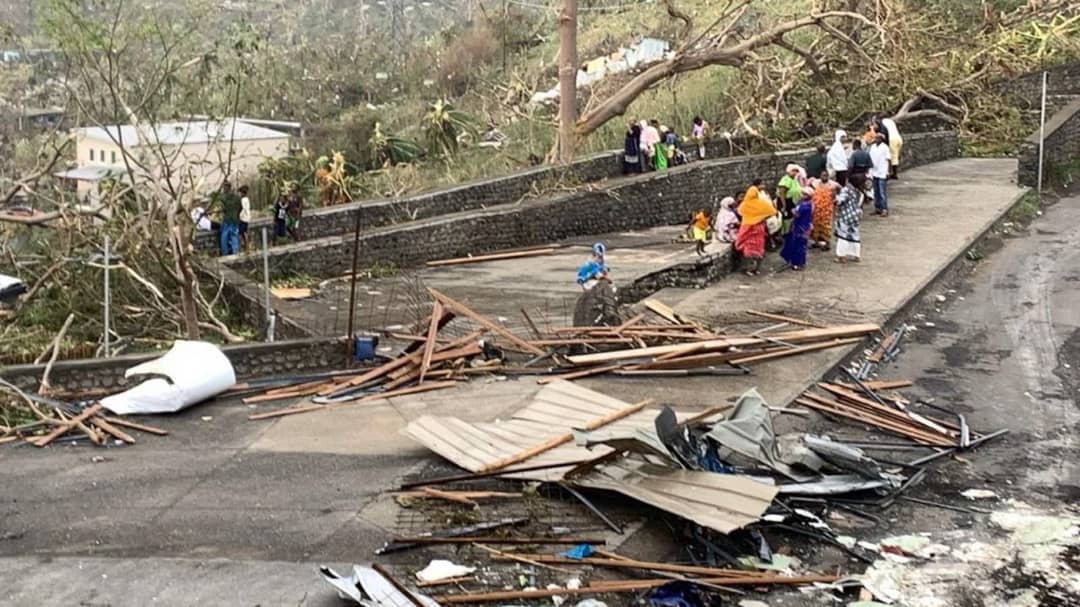By Burnett Munthali
Cyclone Chido has devastated the French island of Mayotte, leaving a trail of destruction and an escalating humanitarian crisis. Early reports suggest that “several thousand” lives may have been lost, while thousands more remain displaced. The cyclone, which made landfall with unprecedented force, has caused widespread flooding, infrastructure collapse, and significant loss of life in the small Indian Ocean territory.
The island has borne the brunt of Cyclone Chido’s fury, with torrential rains and winds exceeding 200 km/h sweeping through the region. Local authorities describe scenes of utter devastation: homes flattened, roads washed away, and entire communities submerged under water. Communications and power lines have been severely disrupted, further complicating rescue and relief efforts.
French President Emmanuel Macron has called the situation “an unparalleled tragedy” and vowed to mobilize international aid to assist the island’s 310,000 residents.
The United Nations Office for the Coordination of Humanitarian Affairs (OCHA) has issued a stark warning: 1.7 million people across Southern Africa are at risk as Cyclone Chido continues to unleash heavy rains and strong winds. Malawi, Zimbabwe, and Zambia are particularly vulnerable, with forecasts predicting significant rainfall that could lead to landslides, flash flooding, and infrastructure damage.
In Malawi, where communities are still recovering from Cyclone Freddy earlier this year, fears are mounting that Chido could exacerbate existing vulnerabilities. Similarly, Zimbabwe and Zambia face the risk of severe flooding, which could displace thousands and disrupt agricultural activities crucial for food security.
International humanitarian organizations are rushing to respond. OCHA has activated emergency response teams, while local governments are coordinating evacuation and relief efforts. However, access to affected areas remains a challenge due to damaged roads and severe weather conditions.
French and European Union emergency response teams are on their way to Mayotte, bringing essential supplies, medical aid, and disaster response personnel. In the broader region, NGOs are pre-positioning relief supplies in anticipation of the cyclone’s continued path of destruction.
The scale of the disaster highlights the urgent need for global solidarity and climate resilience in vulnerable regions. Cyclone Chido’s impact underscores the growing frequency and intensity of extreme weather events linked to climate change.
Southern Africa, already grappling with economic challenges, cannot afford to face these crises alone. The international community must step up with both immediate humanitarian aid and long-term investments in disaster preparedness and infrastructure resilience.
Cyclone Chido’s devastating impact on Mayotte and the looming risks for Malawi, Zimbabwe, and Zambia demand swift and coordinated action. As rescue and recovery efforts intensify, the focus must also turn to building a future where vulnerable nations are better equipped to withstand such catastrophic events.
For now, the priority remains saving lives and bringing hope to those affected by this unprecedented natural disaster.




